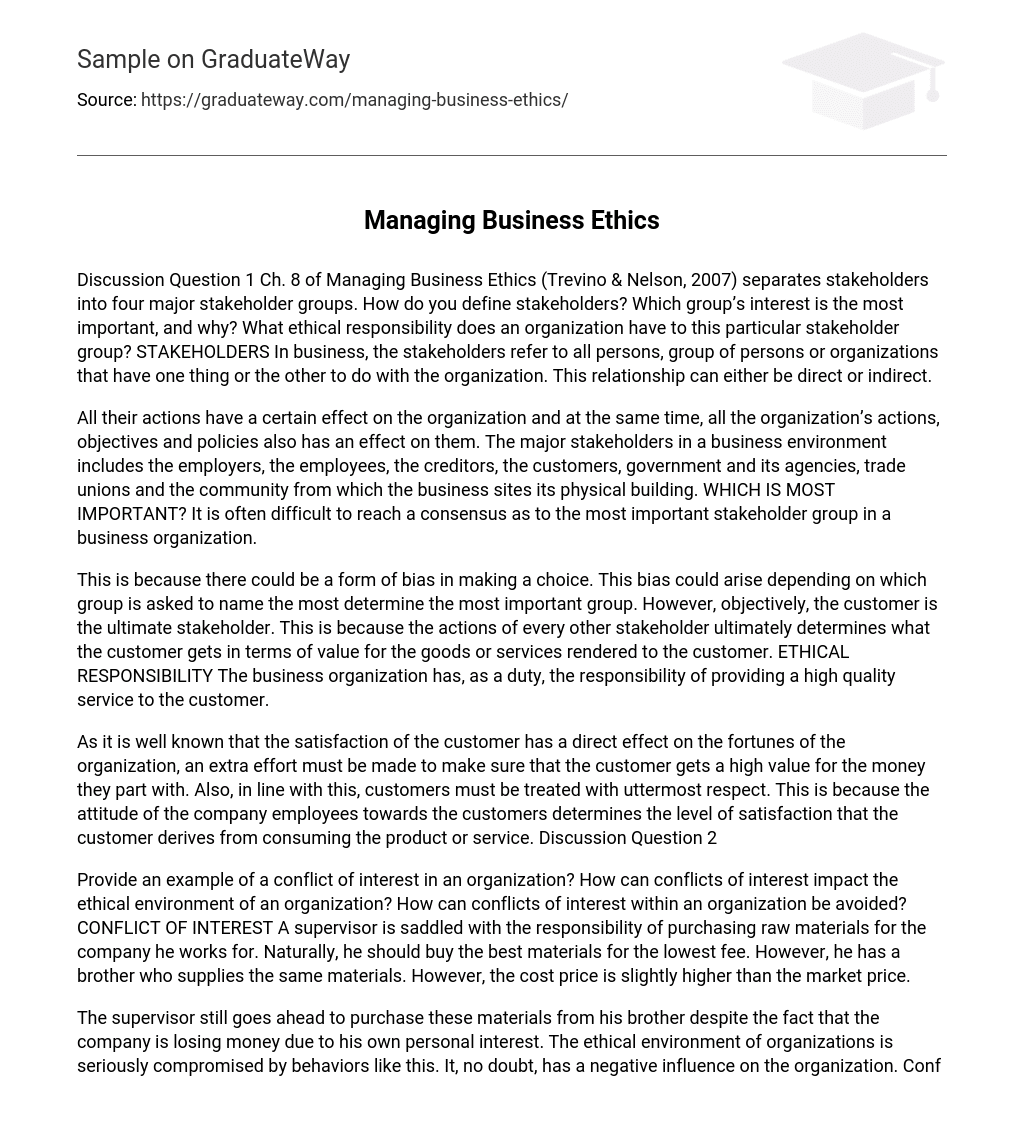STAKEHOLDERS
In business, the stakeholders refer to all persons, group of persons or organizations that have one thing or the other to do with the organization. This relationship can either be direct or indirect.
All their actions have a certain effect on the organization and at the same time, all the organization’s actions, objectives and policies also has an effect on them. The major stakeholders in a business environment includes the employers, the employees, the creditors, the customers, government and its agencies, trade unions and the community from which the business sites its physical building.
WHICH IS MOST IMPORTANT?
It is often difficult to reach a consensus as to the most important stakeholder group in a business organization. This is because there could be a form of bias in making a choice. This bias could arise depending on which group is asked to name the most determine the most important group. However, objectively, the customer is the ultimate stakeholder. This is because the actions of every other stakeholder ultimately determines what the customer gets in terms of value for the goods or services rendered to the customer.
ETHICAL RESPONSIBILITY
The business organization has, as a duty, the responsibility of providing a high quality service to the customer. As it is well known that the satisfaction of the customer has a direct effect on the fortunes of the organization, an extra effort must be made to make sure that the customer gets a high value for the money they part with. Also, in line with this, customers must be treated with uttermost respect. This is because the attitude of the company employees towards the customers determines the level of satisfaction that the customer derives from consuming the product or service.
CONFLICT OF INTEREST
Provide an example of a conflict of interest in an organization? How can conflicts of interest impact the ethical environment of an organization? How can conflicts of interest within an organization be avoided?
A supervisor is saddled with the responsibility of purchasing raw materials for the company he works for. Naturally, he should buy the best materials for the lowest fee. However, he has a brother who supplies the same materials. However, the cost price is slightly higher than the market price.
The supervisor still goes ahead to purchase these materials from his brother despite the fact that the company is losing money due to his own personal interest. The ethical environment of organizations is seriously compromised by behaviors like this. It, no doubt, has a negative influence on the organization. Conflicts of interest can be avoided, firstly, by requiring that all employees declare any potential source of conflict of interest both at the time of their employment and also periodically, as they move from one duty to the other.
Also, if the company has a any, making sure that all employees comply with the ethical code of conduct will go a long way in stemming the tide of conflicts of interest. Limiting all unprofessional relationship among employees, between employers and employees and also the relationship with customers can also reduce the incidence of ethical breaches that can arise from these unsanctioned relationships.
Another way of reducing conflict of interest breaches is to employ people with a high moral standard who know what their duty demands of them. These set of people will invariably recognize any potential conflict of interest and avoid them. Exchange of material gifts among the different stakeholder groups could also create a potential conflict of interest, either immediately or in the nearest future. Therefore , all stakeholder groups must be discouraged about this.





